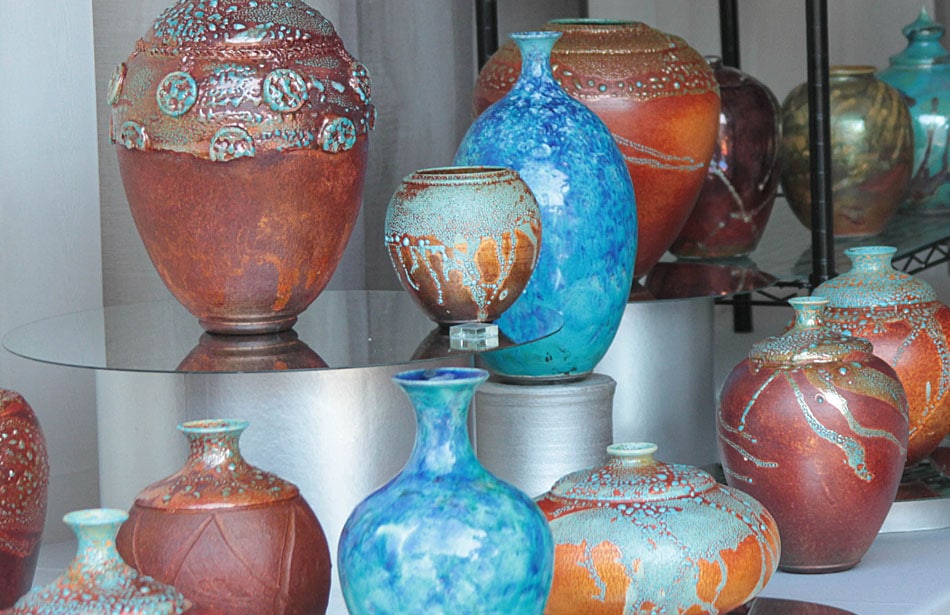Art and business are strange bedfellows. Artists rely on unfettered creativity and the freedom to break the rules in the pursuit of their creative vision. A business on the other hand operates under the constraints of strict due dates, profit margins and expenses that require stability and little compromise. I have the unique blessing (curse?) of living on both sides of the fence. For the past 17 years I have been a member of gallery management by day and a studio artist by night. Wearing both hats has given me invaluable insight that has helped me prosper in my art career.
Every relationship requires trust and respect to survive, and that certainly rings true in an artist/gallery partnership. Here are a few suggestions I can pass along from the perspective of both gallery and artist:
For Artists:
• Be honest with yourself about selling wholesale. If you don’t have a profit margin that allows for sharing half of the sale with the gallery, then you may want to pursue different avenues to sell your work. You can sell online or at art shows, just be aware of the tremendous amount of work outside of the studio that goes into such a venture.
• If you choose gallery representation, never undercut their prices. Customers will try to get a deal by buying directly from you, or you may be tempted to drop your prices at an art show. Don’t! You not only make the gallery look overpriced, but you destroy all credibility for the value of your work. Besides, why deplete your inventory by selling 10 discounted pieces for the same amount of money you could have made selling five or six?
• Be open to suggestions or commissions. Often a gallery will contact an artist about painting a subject based on a customer’s request, or a new corporate client loves your work but needs something more contemporary, traditional, etc. I suggest leaping at the opportunity. It may be just what you need to get out of a creative rut, or perhaps it opens a door to a style you haven’t considered yet. If you show a willingness to work with the gallery, you are sure to be the first one called each time a special project comes up.
For Galleries:
• Accept only work you think you can sell. Seems like an obvious statement, but I think it’s easy for a gallery to “load up” on an artist’s work. Take in what you can display as well as a few pieces to fill any holes as they sell. Excess inventory can clog valuable storage and work space. The work may be better used in shows and juried events where the public can become familiar with the artist’s work, leading them to inquire whom the representing gallery is. Getting the art beyond your walls is the best way to expose people to what you have to offer.
• Stick to your guns on pricing. This one may be up for debate, especially with the recent slow economy and new competition brought on by online businesses. Sales and discounts should be a special event, not the norm. You’re selling one of a kind, handmade items; not tube socks. Retailers groom consumer spending habits. Once consumers get used to discounts, it’s very tough to wean them off. Original art is a special purchase and should be respected as such.
• Patience, patience, patience. Artists are a unique group. They are driven by inspiration, and sometimes that gets derailed. I know a gallery needs work to sell, and to a business person that would seem like incentive enough. But a creative block can be crippling, and even the promise of financial gain can’t jolt you out of it. If you push the creative process, the work will either flourish or suffer; not much middle ground to be had. If you really like the artist, you’ll give them some room to get on track. You’ll have to decide if your business can handle the inconsistencies that plague most artists. If not, it’s a prime opportunity to try some new blood in your gallery.
Rex Redd has been a professional framer for nearly two decades. His late-night hours are divided between his pottery, painting and printmaking studios. Visit his Facebook page and his blog.




